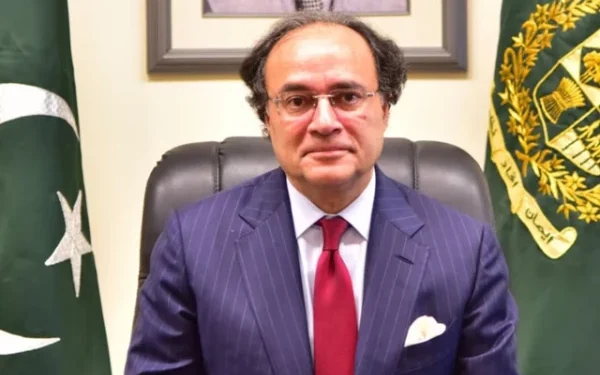Islamabad, In a major policy shift, the Economic Coordination Committee (ECC) of the Cabinet has approved a new honorarium policy for federal government employees, granting the Finance Minister discretionary authority to approve honorarium payments for select ministries, including the Prime Minister’s Office, the National Assembly, and the Senate Secretariat. The revised policy aims to streamline the reward mechanism for public servants involved in crucial budget preparation and implementation processes.
Key Highlights of the New Honorarium Policy
The decision was taken during an ECC meeting chaired by Finance Minister Muhammad Aurangzeb, and is viewed as part of a broader strategy to incentivize and recognize the efforts of government officials working on economic policymaking and budget execution. Under the new policy:
- The Finance Minister has been empowered to approve honorarium amounts for employees of key departments such as the Finance Division, Revenue Division, Federal Board of Revenue (FBR), Planning Commission, and Special Initiatives Division.
- Honorarium will also be applicable to staff working in the Prime Minister’s Office, National Assembly, and Senate Secretariat.
- The rate of income tax on honorarium has been reduced to only 5%, significantly lower than the regular income tax rates applicable to salaried individuals.
- The size and distribution of honorarium will be determined annually at the discretion of the Finance Minister, depending on the available budget and performance assessments.
What is an Honorarium? Understanding the Context
An honorarium is a financial reward granted to government employees as a token of appreciation for exceptional performance, additional workload, or special assignments, particularly during events like budget preparation, elections, or national emergencies. In Pakistan’s bureaucratic system, honorariums have often been a subject of both praise and controversy, primarily due to transparency and fairness concerns.
Previously, honorarium payments required multiple layers of approval, often causing delays and bureaucratic inefficiencies. The new policy attempts to simplify this by empowering the Finance Minister to make quicker decisions while still maintaining a system of checks and balances.
Finance Minister’s Response: Balancing Authority and Accountability
Addressing questions from journalists following the ECC meeting, Finance Minister Muhammad Aurangzeb emphasized that this discretionary authority does not imply absolute power. Instead, it is intended to facilitate quicker administrative decisions during critical times such as the federal budget cycle.
“As Chairman of the ECC and Finance Minister, I work closely with all economic ministries. This puts me in a unique position to evaluate performance objectively. However, I must clarify that these decisions will not be made unilaterally,” said Aurangzeb.
He further explained that recommendations from departmental committees and relevant ministries will continue to play a guiding role in determining who receives the honorarium and in what amount.
Existing Framework: How Honorariums Were Previously Approved
According to sources within the Ministry of Finance, the authority to approve honorarium payments previously rested with federal secretaries for officers up to Grade 18, while payments for senior officers (Grade 19 and above) required the approval of the Chairman of the ECC, typically the Finance Minister. This led to inconsistent application of honorariums and grievances among government employees regarding favoritism and lack of standardization.
The new policy aims to institutionalize the process and bring more clarity and predictability into how and when these payments are made.
Reduced Tax on Honorarium: A Welcome Relief
A notable component of the policy is the reduction in income tax on honorarium to just 5%, compared to the standard tax slabs which can go as high as 35% for salaried individuals. This move has been welcomed by civil servants, who see it as a way to maximize their take-home bonus for extra work during budget sessions and national-level initiatives.
The reduced tax also aligns with the government’s fiscal incentive programs aimed at retaining talent within the civil service and encouraging efficient service delivery.
Implications for Key Ministries and Budget Planning
The honorarium policy is particularly significant for ministries like the Finance Division, Revenue Division, and the Planning Commission, all of which play a pivotal role during Pakistan’s annual federal budget cycle. Each year, hundreds of officers work overtime to finalize budget documents, financial reports, revenue estimates, and strategic economic frameworks.
By granting the Finance Minister control over honorarium approvals, the government seeks to reward hard work efficiently, thus boosting morale among employees at a time when public sector performance is under increasing scrutiny.
Concerns About Transparency and Oversight
Despite the potential benefits, the move has also raised concerns among opposition parties and civil society watchdogs, who argue that granting discretionary powers to a single official—even the Finance Minister—could lead to abuse of authority and lack of transparency.
Some critics suggest that a more independent oversight mechanism should be established to ensure that honorariums are awarded based on clearly defined criteria such as measurable performance metrics, rather than personal discretion or political favoritism.
Reform in Public Administration: A Step Toward Incentive-Based Governance
Supporters of the policy argue that this change is part of broader reforms in Pakistan’s public administration aimed at making the civil service more responsive and efficient. The idea is to reward merit and hard work rather than sticking to outdated bureaucratic norms that do not differentiate between high and low performers.
With Pakistan aiming to streamline public expenditures while also enhancing productivity in governance, such incentive-driven policies could serve as a catalyst for performance culture in federal departments.
Looking Ahead: Policy Implementation and Monitoring
Implementation of the new policy will be monitored by the Finance Division, which is expected to issue standard operating procedures (SOPs) for honorarium distribution. These SOPs will likely include:
- Eligibility criteria for recipients.
- Departmental performance benchmarks.
- Timeframes for honorarium disbursement.
- Audit protocols to ensure transparency and prevent misuse.
The Federal Audit Office may also be tasked with conducting random audits to evaluate the fairness and effectiveness of honorarium disbursement under the new framework.
Conclusion: A Strategic Move with Long-Term Impact
The ECC’s decision to grant discretionary authority to the Finance Minister for honorarium approval marks a significant shift in Pakistan’s public sector compensation framework. While it offers greater administrative flexibility and efficiency, it also places a greater responsibility on the Finance Ministry to act with transparency and fairness.
As Pakistan prepares its federal budget for FY 2025-26, the effectiveness of this new policy will be closely watched—not only by government employees but also by policymakers, civil society, and the media. Whether it results in greater motivation and improved governance, or raises further questions about centralized control, will depend on how well the policy is implemented in the coming months.

























